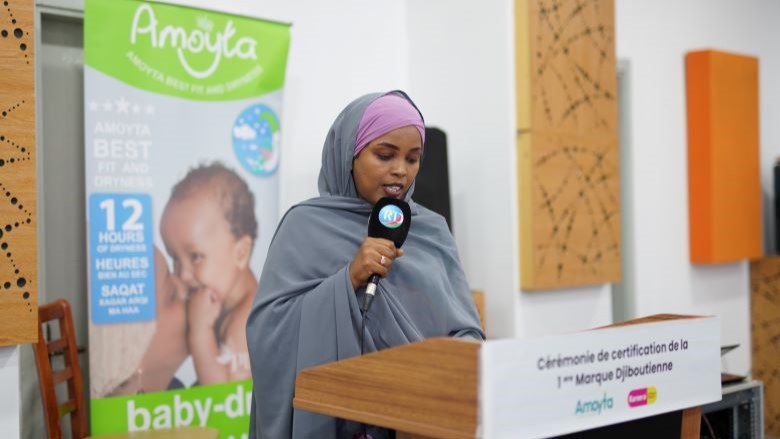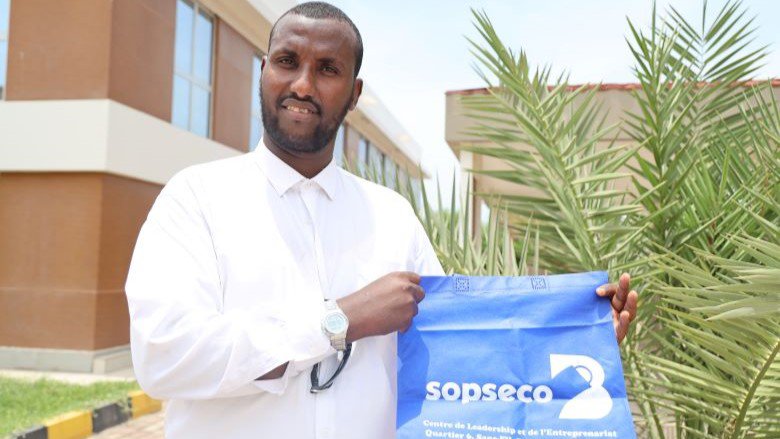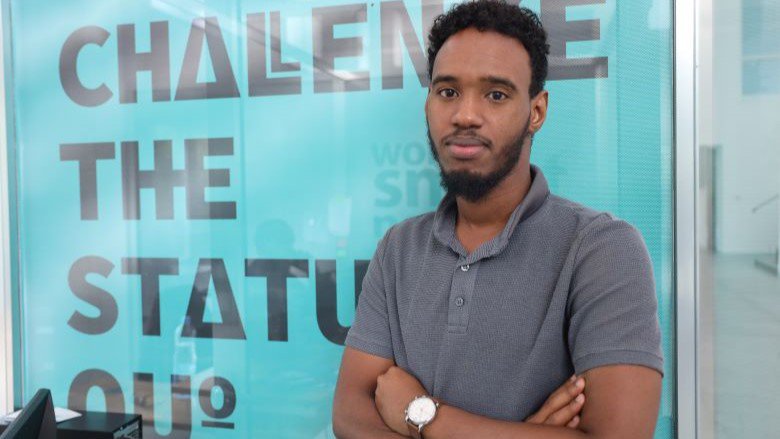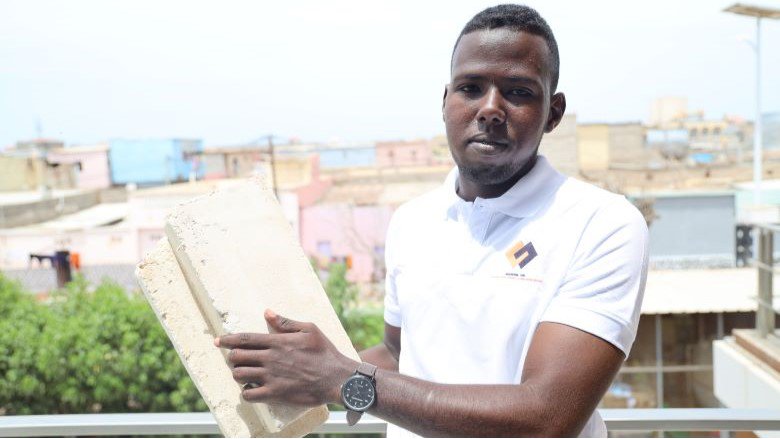Young entrepreneurs, many of them women, are breaking down barriers in Djibouti and starting new ventures, from selling biodegradable bags and hygiene products to creating a telemedicine business.
Entrepreneurs have faced many obstacles in Djibouti, including a lack of start-up capital that put starting a business out of reach for many Djiboutians. But that dynamic is changing. A World Bank project, financed to the tune of $15 million, and implemented by the Center for Leadership and Entrepreneurship (CLE), has already helped more than 727 businesses to become formalized in Djibouti. As in many countries, individual entrepreneurs are working in the informal sector, with limited access to funding to grow their businesses, a shortcoming the project is seeking to address.
The Djibouti Support for Women and Youth Entrepreneurship project has offered access to financing to over 2,350 entrepreneurs and the CLE has also supported more than 20 start-ups so far with seed funding of around $65,000. In the Djiboutian entrepreneurial landscape, which is still in its infancy, these results represent a shift and offer a new path forward for nascent businesses.
The project has also supported the operationalization of the partial credit guarantee fund for SMEs in Djibouti, which mobilized over $2 million in investments from participating banks, enabling over 150 Djiboutian SMEs to access bank financing and continue growing their businesses.
Meet four inspiring entrepreneurs who were able to overcome challenges and make their dreams a reality through support from this project.
From young father to successful entrepreneur (Sopseco)
Abdillahi Ibrahim is a young man from the disadvantaged municipality of Balbala and father of four children. He launched his company, Sopseco, after participating in the CLE incubation program. He was able to realize his idea of manufacturing customizable biodegradable bags after participating in CLE trainings. “The incubation helped me a lot, in particular the training on how to carry out your project, or the market studies,” Ibrahim said. “I only had the idea, but I didn’t know how to launch the project.”
Indeed, the acquisition of key knowledge, the development of specific skills or even ideation workshops, allow entrepreneurs to validate the relevance of their concept, create solid networks, and access valuable resources, which significantly increases their chances of success when they get started. Today, Ibrahim has eight daily wage earners and two shops that resell his biodegradable bags. Within one year and thanks to CLE's acceleration program, he plans to hire 15 employees and be in 10 stores throughout the country.
Medical student passionate about the use of technology (Medyc)
Moubarek Mahamoud is a medical student who became an entrepreneur while taking a year off from his studies. While waiting to re-enter university to continue his medical studies after being in Guinea, Mahamoud worked on his entrepreneurial telemedicine project.
Thanks to his passion for IT and medical knowledge, he launched Medyc, an online medical teleconsultation platform. He applied for the first CLE incubation program in September 2019 and was one of the first entrepreneurs to benefit from the program. The support and guidance he received played a determining role in his journey.
In addition to the training and seed funding, Mahamoud was able to benefit from a network of contacts through the networking sessions. But for him the major impact was the credibility and visibility that the support gave him. “I sent an email one morning to the general management of the National Social Security Fund of Djibouti, offering them my solution, and suddenly they responded positively,” he said. “This is how I was able to get not only my first client, but also the biggest client in my portfolio." With that contract, Mahamoud’s startup was then able to raise 107,000 euros from international investors via a SAFE (Simple Agreement for Future Equity) financing agreement, becoming the first Djiboutian startup to achieve such success beyond its borders. Today the startup continues its growth through the CLE acceleration program.
From technician to energy efficiency expert (MnergySol)
Abdillahi Ahmed started as a senior technician in a large Djiboutian company, before deciding to change direction in his life. He started a project focused on energy efficiency and was accepted into the CLE incubation program. With training and coaching, he created a business that offers consulting services on energy efficiency audits and has created prototypes to produce ecological bioclimatic construction materials.
“For me and my team, the coaching we received as part of the incubation played an invaluable role. We experienced several difficult moments where we questioned our project,” he said. “Without the coaching sessions we probably wouldn't be here today. It gave us motivation and the feeling of not being alone in this journey.”
Today, he says they are a solid team with two technicians working in the shop, and they want to create more jobs. Abdillahi would like to position his company as a major player in the energy sector in Djibouti, but his main goal is to raise awareness and further educate customers on the construction of bioclimatic houses and to promote efficient energy consumption in order to change people’s thinking about this sector.
Improving and providing hygienic products for moms and babies (Amoyta)
As a young mother and female entrepreneur, Radia Ali faced doubts and fears when starting her business, but she persevered thanks to her determination and the support of her family and friends. Her company, Amoyta, which specializes in hygiene products for babies and women, encountered difficulties in accessing financing. After several attempts with local banks, Ali and her husband were refused loans despite having a business model and promising figures. “The banks were not receptive,” she said, “which is why we always thank the Partial Guarantee Fund which was there to support us.”
The Partial Guarantee Fund supported Ali to obtain bank financing to invest and expand her business. This financing was vital for the development of her project and for opening doors. “We were able to gain the trust of the banks,” she said. “And in fact, today, we are on our third loan and are going to launch new products.” The funding helped expand Amoyta's production, which now offers different sizes of baby diapers, as well as sanitary napkins and other baby hygiene products.
But for Ali, the road is still long. Despite the presence of more and more Djiboutian women in entrepreneurship, access to financing is a challenge. She explained that women entrepreneurs therefore remain working in the informal sector due to the lack of formal financing and support, and they end up preferring to stay there.
Since its launch, the Women and Youth Entrepreneurship Support Program has succeeded in demystifying entrepreneurship in Djibouti through a wide range of awareness programs. Ideation workshops, meetings with local and international entrepreneurs, as well as the celebration of Entrepreneurship Week, helped change the perception of entrepreneurship in the country.
Despite the enthusiasm of young people to become entrepreneurs with such support, Djibouti still has a long way to go in the next phase: from encouraging the creation of startups to helping them continue to grow and nurturing SMEs beyond the first stages of their business.





